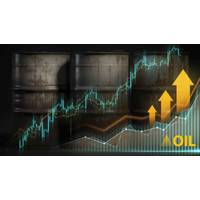An attempt by some European politicians to veto the import of tar sands oil failed on Wednesday after a European Parliament vote, giving a boost to Canada but dismaying green campaigners.
After years of lobbying from Canada, the European Commission published a new plan in October on reporting the greenhouse gas intensity of transport fuels. It abandoned the idea of labelling tar sands oil as highly polluting.
Earlier this month, a parliamentary committee vetoed the plan in an attempt to get tar sands oil branded "dirty", on the grounds it produces more carbon than other oil because of the energy needed to extract it from bituminous deposits.
The veto was put to a vote in a plenary session of the European Parliament on Wednesday. While 337 lawmakers supported the veto, that fell short of the 376 votes needed to prevent the European Commission's plan going through.
The October plan removed a requirement to insist on separate carbon values for different types of oil. This would have made it more difficult for European refiners to use Canada's oil sands or oil shale from EU member state Estonia and meet EU regulations on reducing carbon emissions.
Canada says its oil can diversify EU supplies, especially as the Union is seeking to reduce dependence on its top energy supplier Russia. Estonia has said its economy could suffer if unconventional oil had to be labelled more polluting.
Oil prices at about $60 a barrel, near their lowest in five and a half years, add to the challenge of developing sources such as tar sands, which the industry refers to as oil sands, because it costs more to extract.
The industry says Canada's resources, being developed by firms such as ExxonMobil, BP and Royal Dutch Shell, were unfairly singled out in the original EU plan.
Welcoming Wednesday's vote, Greg Rickford, Canada's minister of natural resources, said Canada was "a secure, reliable and responsible source of energy".
Campaign group Transport & Environment said the EU plan included a "a basic tracking system of the fuels used in transport", saying it was better than nothing but too weak.
"We know the origin of the coffee we drink and the chocolate we eat. But we are in the dark when it comes to the hundreds of billions worth of petrol and diesel we put in our cars," programme manager Nusa Urbancic said.
(By Barbara Lewis; Additional reporting by David Ljunggren in Ottawa; editing by David Clarke)








